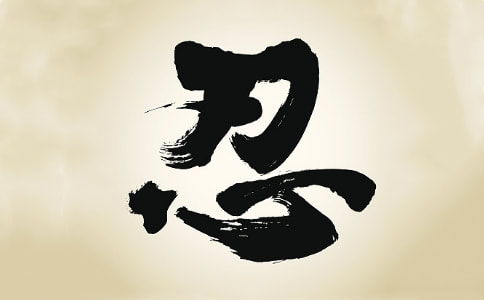Asian American Invisibility & Ending the Culture of “忍”
the character commonly translated to mean “to persevere”. But it also means to endure, tolerate, and conceal. It is considered a virtue in Chinese & Japanese cultures. 忍者 – a person who perseveres – also means ninja.
I am angry. I don’t get angry very often. In fact, I almost never get angry because that is not how I was raised. If something bad happens to me and it is upsetting, keep it inside and “忍” – endure it and hide it. The chain of attacks on Asian elders earlier this year, preceded by countless racial-motivated verbal assaults across the country; made me upset. The latest hate crimes in Atlanta, pushed me over the edge – it made me angry. I spent days feeling a combination of sadness, numbness, and anger; but this anger is new to me. I wanted to scream, to break things. I have had enough. I could no longer “忍” – and I think this is what so many of my other Asian American friends feel as well. The crime was atrocious. Then add to that the continual denial that it was a racially-motivated hate crime; and the deputy police sheriff’s claim that the assailant was having a “bad day” – as if all Asian women are only defined as sexual objects that are inherently disposable. And this wave of violence has not stopped – this week, a 65-year old Asian woman was beaten in broad day light in Manhattan, in plain view of several building security guards, and no one responded to help her. No one cared.
A couple of weeks ago, a friend shared Sharon Kwon’s article, “This Is What No One Tells You About Being Asian In America In 2021” with me. I re-read the article many times because it captures the feeling (my feeling) of muffled tears so well; a feeling I believe many other Asian Americans share. When attacks on elderly Asian Americans happened in different parts of the country, I didn’t hear about them. They weren’t covered in any of the news outlets that I consume regularly. When I shared this news on social media, many of my Asian American friends were also surprised to see it – because they had not heard about this violent trend either. These attacks are scary and painful. But the heaviest blow is that no one else seems to care enough to even talk about it. Like Kwon says in her article, “This lack of acknowledgement is nothing new for Asian Americans. We are used to being ignored. We are used to minimizing our own pain because we don’t want to rock the boat.” And for the first time I hear myself asking, when is it our turn to take up space, to be included in conversations, to be counted? Does it take a mass shooting for people to see us?
I have lived in the US on and off for 20 years now, and my hesitancy and nervousness about speaking up and asking to be counted (and indeed my hesitancy to even write this piece) comes from the same place that has allowed Asian Americans to remain invisible for so long. I feel nervous about causing trouble – as an immigrant, we study hard and work hard, we take care of our family, we keep our heads down. I feel nervous about my English – no matter how hard I try to hide my accent, I will never sound American enough; and my written English will never be good enough, because I am not a native English speaker. I feel nervous about raising my voice – as someone who grew up in British colonial Hong Kong, I was bred to not have a sense of civic engagement – we were taught at a young age to accept that as non-English people we will never rise in ranks of any large institution.
But there is nothing like becoming a parent to force you to challenge your comfort zone; to think beyond what you know and have strength to do. Because these attacks are not just about what happened to those poor Asian grandpas and aunties whose faces remind us of our kin; it is also about how my Asian American child will thrive or be stifled as an adult.
My eleven-year old has a more straight-forward response to the recent events: “This isn’t OK. It’s dumb that people are attacking Asian people because it doesn’t matter where Covid was started. If it was started in Europe it wouldn’t be like this. The victims were only trying to make money and survive. They didn’t deserve it. You can’t justify killing people.”
“I feel enraged. I wish I could protect all the Asian people out there and change the minds of all the racist people. I think people are racist because some people look and do things differently, and speak different languages, and these differences make racist people feel threatened. They worry that everything around them could change. Asian people are picked on because they think Asians won’t do anything about it, because we tend to be respectful and peaceful, and we won’t fight back. Now is time to fight back; we need to stand up for each other and make a change!”
I suppose the next question would be – what is justice? What is “just,” what is “equitable,” and how can we create the changes that are urgently needed where our BIPOC children can feel that they are valued as much as their white peers? I am saddened by what has happened, but I also believe firmly that our future will be steered by a new generation who is more clear-eyed and has the strength and optimism to pursue the just world in which they believe.
Sue Lowcock is the Director of Development at VISIONS. Sue is an immigrant from Hong Kong with a mixed race background of Chinese/ Parsi Indian/ English heritage.

